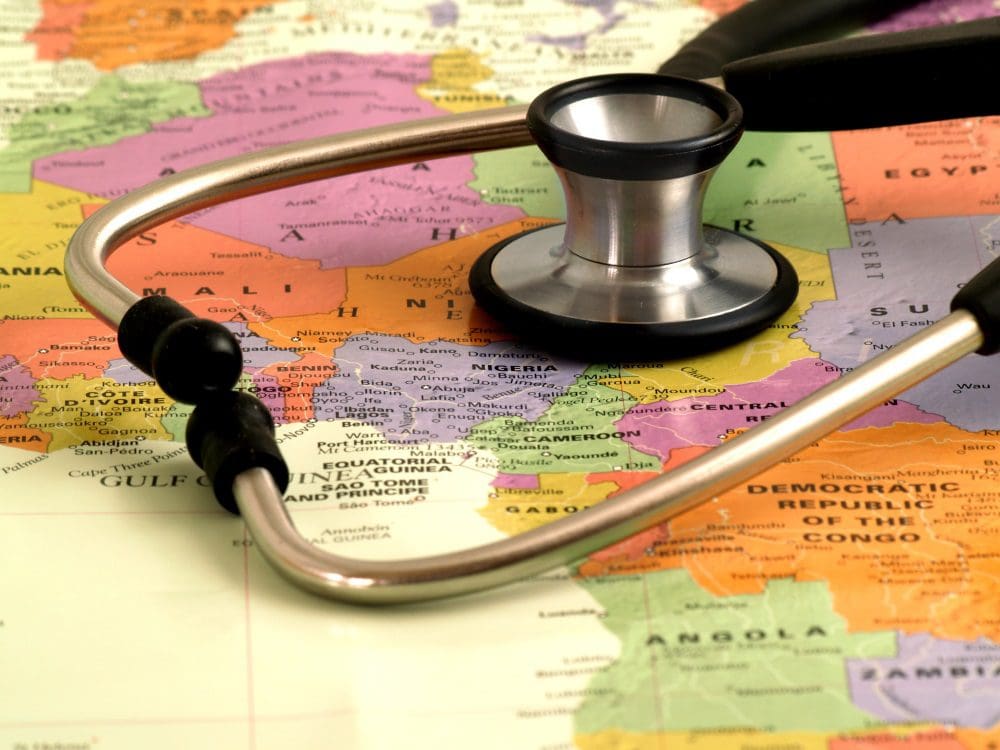 Nothing can ruin a trip faster than a medical malady, whether it’s a mild case of Montezuma’s Revenge or a major health scare that requires hospitalization. Here are steps to take to preempt, prepare and protect yourself to stay healthy while traveling.
Nothing can ruin a trip faster than a medical malady, whether it’s a mild case of Montezuma’s Revenge or a major health scare that requires hospitalization. Here are steps to take to preempt, prepare and protect yourself to stay healthy while traveling.
Preempt Medical Issues
Before travel, possibly even in the trip planning stages, do a bit of research on your destination to find out if there are any specific health or safety concerns. The Centers for Disease Control and Prevention (CDC) posts current travel health notices for specific destinations, such as the risk of Malaria, Dengue or Yellow Fever. Travel Maestro tip: Professional Travel Advisors have an incredible amount of knowledge about the world, but are not qualified to dispense medical advice. You need to travel health clinics for recommendations on shots and medicines to protect your health.
You should also consider your existing health status before travel. Generally women beyond 36 weeks of pregnancy and infants less than two days old should not fly. Those with recent stomach or head injuries, orthopedic surgery, or heart attacks need to consult with their doctors to be sure they are safe to travel. Travel Maestro tip: If you are contagious at the time of travel, please don’t expose other travelers to your illness.
Plan Ahead with a Travel Health Kit
Know that some health items or supplies may not be available in your destination, for example, an Epi-pen for severe allergies, so you should pack accordingly. Be sure to pack any prescription medicines in your carry-on bag to avoid being without them if your checked bag is lost or delayed. Carry copies of your prescriptions not only to make it easier to refill if necessary, but also to prove that you have the right to possess the pharmaceuticals. Some countries ban certain controlled substances, so you can check with the American Embassy before travel. Travel Maestro tip: You may need a note on the prescribing physician’s letterhead for injectable medications.
Over the counter medications and preventative supplies in your travel health kit can include:
- Antidiarrheal and/or laxative medicines
- Antihistamines and/or decongestants
- Motion sickness medication, patches or bands
- Water purification tablets
- Altitude sickness medication
- A mild sleep aid
- Pain reliever
- Antacids
- Hydrocortisone or antibacterial cream
- Basic first aid items – Band-Aids, Q-Tips, ace bandage, antiseptic, tweezers, etc.
- Sunscreen
- Insect repellent with DEET
- Hand sanitizer
- Eye Drops
You should know the indications of illness, such as a fever of 100° of more, extended cough, diarrhea or vomiting, mental confusion or shortness of breath, and have a medical strategy should they occur. Know if you are at risk of blood clots, or Deep Vein Thrombosis, and take preventative measures such as staying fully hydrated, wearing compression socks and frequent stretching on long flights.
Travel Maestro tip: Above all, consider travel medical insurance that will help you connect with the right doctor or even cover emergency evacuation, should it become necessary.
Protect Yourself to Stay Healthy While Traveling
After all the trip preparation, don’t get sick or injured by disregarding basic travel safety. One of the most common ways travelers get sick is from consuming food or water that create intestinal problems. In some countries you’ll need to avoid tap water and ice cubes. If ever in question, the rule of thumb is if you can’t boil it or peel it, forget it.
Other simple protections include washing your hands frequently with soap and water, using insect repellent and wearing long sleeves and pants in areas with malaria, and wearing protective equipment when engaging in adventure activities. Travel Maestro tip: Don’t forget your sunscreen and a hat! A painful sunburn will not only make your trip unpleasant, but overexposure to UV rays is the number one cause of skin cancer.
We encourage you to use these tips to stay healthy while traveling. For more country specific information please contact a Covington Travel advisor.

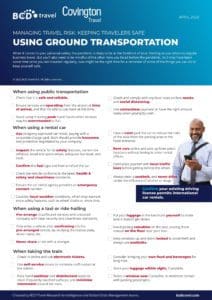
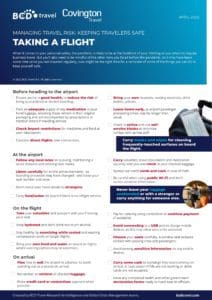
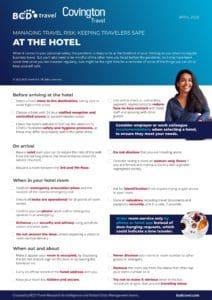
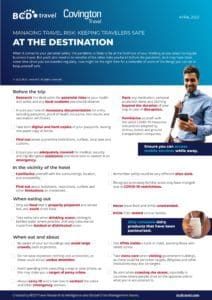
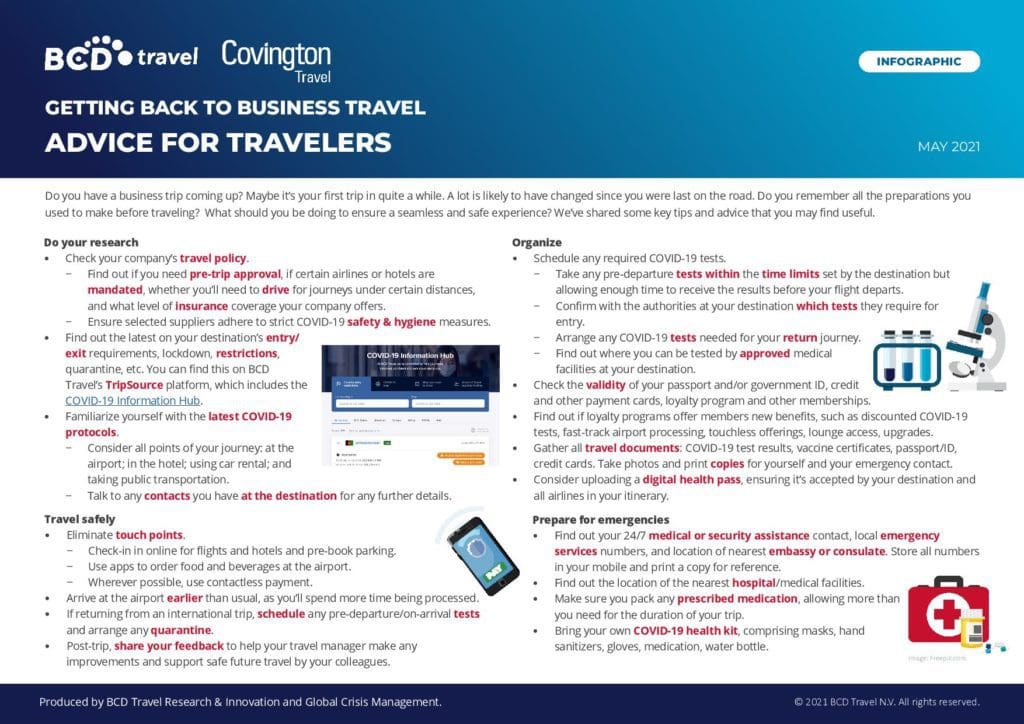
Leave a Reply